The Inside Woman at the Obama White House
Social secretary Deesha Dyer is sharing her real life behind the scenes—her imposter syndrome, her abortion, and what she wants young Black women to know.
BY REBECCA CARROLL
Back in 2009, as a 31-year-old part-time community college student inspired by the election of America’s first Black president, Deesha Dyer applied on a whim for a White House internship. Much to her astonishment, she got it. She went on to become the White House social secretary during the last two Obama years, curating large-scale events, meeting royalty, the Pope, and her hip-hop heroes. She managed her spectacular successes while fighting off a severe case of imposter syndrome and dealing with the daily microaggressions a Black woman faces in the historically whitest of houses. Dyer tells her extraordinary story in her new memoir, Undiplomatic: How My Attitude Created the Best Kind of Trouble, and we sat down to talk about all of it.
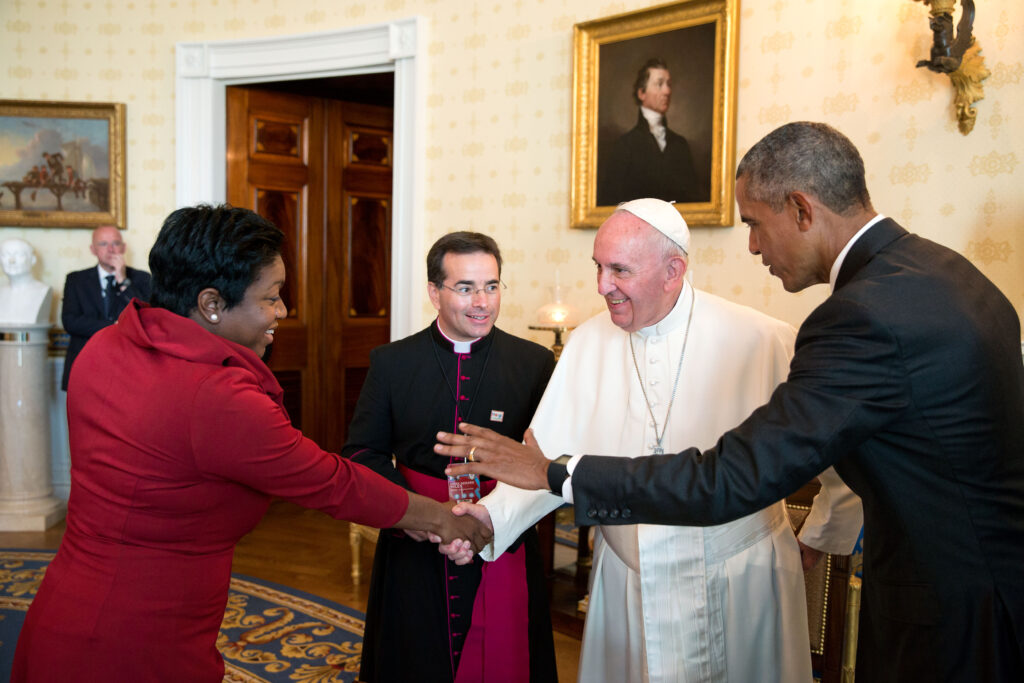
Rebecca Carroll: For many people, but especially for Black folks, the Obama years were not just an eight-year presidency; they were an era, like the Harlem Renaissance or the Black Arts Movement. It was a collective glory. What was it like to be such an integral part of that?
Deesha Dyer: What made it so wonderful for me is that I wasn’t in this world before, so I had no preconceived notion. The same wonder I had when I started encountering [Barack Obama] on my television in 2007 was the same way I was for eight years.
Yes, they were President and First Lady, but also they were Barack and Michelle Obama—community activists, Black folks who had student loans at some point. It was an everyday tussle in my head of being like, “Remember, they’re President and First Lady; they’re not just Barack and Michelle.” I wanted to look at them as regular people, but I had a job to serve them. And they are people that I respect and revere. To this day, sometimes Barack Obama will joke with me, and in my head, I’m like, “Oh my God, I’m living this moment, I’m a witness to this,” and it’s just a joy.
In your book you write that you identified with President Obama’s non-traditional family background. Can you talk a little bit about why that is?
Number one, we always saw white presidents—but also, when I got to know Barack Obama’s background, it was just like, “He didn’t have a mom and dad both in the home; he lived with his sister, and he lived in Hawaii. He moved around, so it wasn’t like this cookie-cutter background.” [Dyer spent most of her childhood away from her parents while she attended a boarding school for low-income students.] And I had that excitement like, “He understands what some of us go through…This person will maybe get some things that are not traditional.”
One of the very real joys of your book is its realness and humor. When you write about your interview with Mrs. Obama for the job of social secretary, and she asks you how you’re doing—I mean, you were all of us when you said in your head: “I am out here fighting for my life!”
I’m fighting for my fucking life! Like, “What do you mean how am I? How would you be sitting here for an interview with Michelle Obama?! How would you be sitting with yourself? Clearly, I’m not okay.” I can see it like it was yesterday.
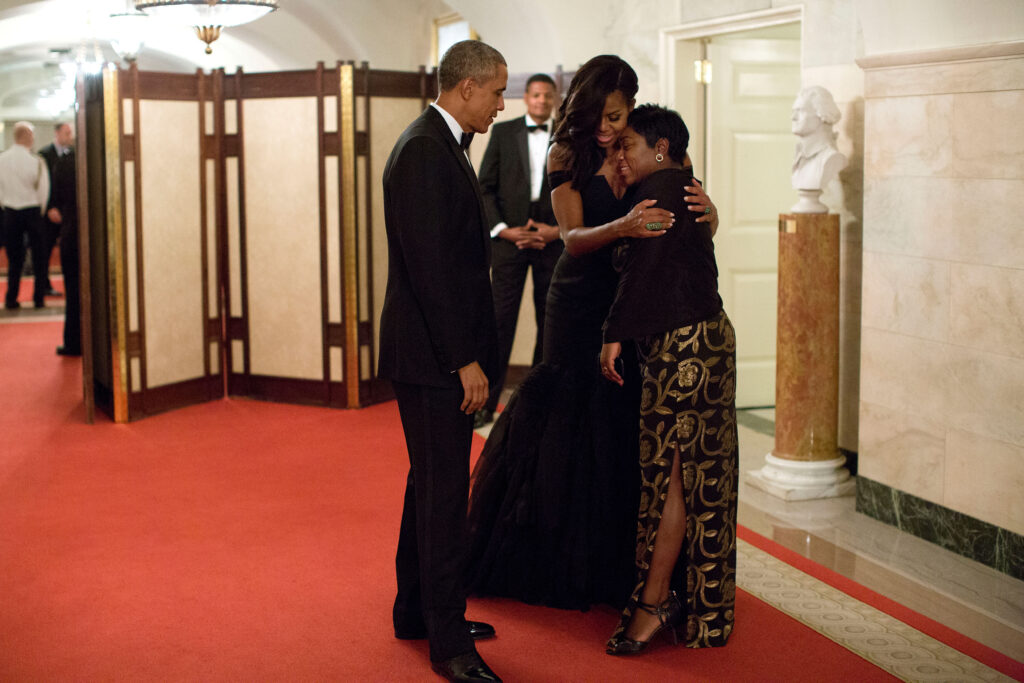
Were there other instances with Mrs. Obama that you left out of the book and might want to share?
Oh, there were millions. But [she] would always tell me to tell my story. One time, we were in Miami, and I was working, so I wasn’t at the dinner table. She said, “Deesha, come over here, sit down, and tell them your story.” And I’m like, “Erm.” I knew her friends, but I held a very clear distinction: If I’m working, I ain’t drinking. I’m over here. When y’all leave, that’s when I’ll eat and drink, right?
We had a lot of just small moments, fun moments, laughing moments. She’s a human being, but she’s also one of these people that—you prepare for a meeting with and think you’ve thought of everything, and she asks the one thing you didn’t think of.
You write very candidly about having had two abortions, one while you were working at the White House—ironically, you wrote, just after you met the Pope. You say that that second abortion ended up being kind of a breakthrough in your life. Did that surprise you?
It really did, because I was still very thick in the imposter syndrome: “I’m a fraud, blah, blah, blah.” When I had the abortion, there were no regrets. I’ve always been on the side of reproductive rights. I had a medical abortion, so I did it at home. But I went back to work when I was still bleeding and wearing Depends. And I was just like, “What the literal fuck am I doing here with a fucking diaper on? This is crazy.” That breakthrough for me was huge because I just couldn’t believe that I thought I had to go back to work wearing a diaper after an abortion.
Because if you didn’t, it would further fuel your sense of fraudulence?
One hundred percent. The culture of work is different now than it was then, and I think I was afraid somebody would be like, “Why is she taking [time] off?” And so, I was like, “I’m going to go back just to prove I can do it.” Because when you’re in your fraudulence, you do anything to prove that you can handle it. Which is why we see Black women in the workplace with hair loss, diabetes, high blood pressure, and strokes: because we’re trying to prove that we’re not a fraud, that we’re supposed to be there, that we can handle it.
It’s the way in which imposter syndrome is so symbiotic with the historical stereotypes that have been put upon us.
Say that! I know that we’ve come very far with mental health and workplace culture, but please. If a Black woman is like, “I’m going to take some time off,” when you come back, it’s like, “Are you okay?” Treating me like I’m a child. I never really [encountered] anybody who did that in the White House, but it still was the White House. It was still people [who did not believe] I could do the job. And so, I thank goodness something didn’t happen to me because I would’ve probably died for that job. For what? Now, I’m like, “No.”
We were talking earlier about your abortion—how surreal is it now to think about having had an abortion while at the White House, which is two miles from the Supreme Court where Roe was overturned?
I’m not surprised, especially given the last President [and his] Supreme Court justice [appointees], but I would say I’m angry. I’m angry in a way that makes me have to watch my wellness. As somebody who’s had abortions and somebody who has a fucking vagina and ovaries and everything else, it’s kind of just like, “How are we so discounted that we can’t make our own decisions?” It’s the reason why I talk about [my abortion] in the book: I want people to understand that abortion is a normal thing. We have sex, and [if] we don’t want to have children, we have abortions. Let’s move on.
But did I think we would ever be here? I don’t think I did. But when Trump came, I knew it was a possibility. I remember running to my OBGYN and getting my IUD because I knew what was going to happen. I got it in February 2017 before I lost my federal health insurance, and I was like, “Let me get the real good one, the one that will last through his presidency.”
By the way—and I don’t know if this is a spoiler or not—but I didn’t realize that the whole Melania Trump bringing a gift for Mrs. Obama on the “transition of presidential power” day was an act of defiance. Everybody saw Melania step out of the car holding a blue Tiffany’s box, and that it was immediately awkward when she handed it to Mrs. Obama, but you write that you had actually confirmed with Trump’s team that there wasn’t going to be a gift exchange.
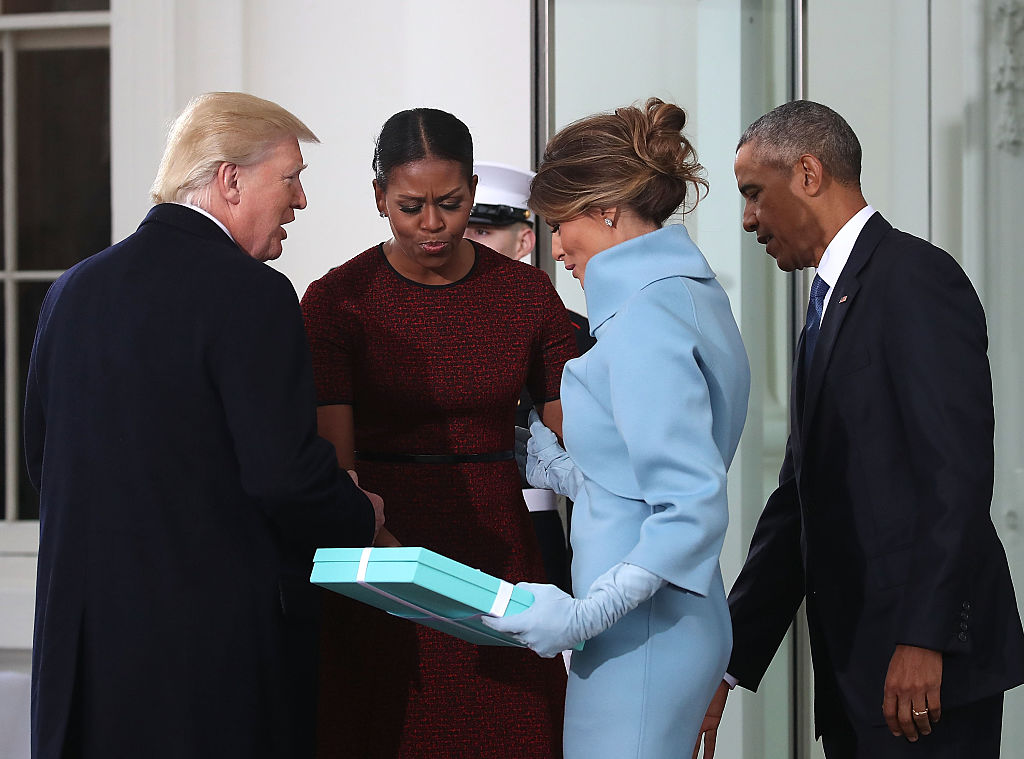
Yeah, we confirmed that there were no gifts coming. Otherwise, we would’ve planned for me to be right there so she got it. But you could see on Mrs. Obama’s face like, “Damn.” Legit like, “What’s happening? What are we doing here?” I think that was [the moment] for me when I was like, “I’m done. This is it for me. These people have lost their everlasting fucking minds.” How do you come up here with a fucking Tiffany’s box? Are we sponsored by Tiffany’s? But it was also so on-brand for them.
I understand what you mean by on-brand, but even so, why do you think [Melania Trump] would do that?
I’m going to be for real. I don’t think Mrs. Trump had a clue. I honestly think she had no idea about the protocol. I think she was shocked to be there. I think they were both shocked to be there for all four years. I think maybe they knew where the White House was, but that’s about it. I don’t think that they had any idea [about protocol], but their team should have known.
In keeping with our idea of fighting and wellness, your story includes a lot about your “unexpected path,” and I wondered how your definition of an expected path has changed since you worked in the White House.
My definition has changed in the sense that I don’t have one anymore. But I think that the world’s definition is still the same. There aren’t a lot of companies that are going to hire somebody with great experience and no college degree [as the Obamas did with me].
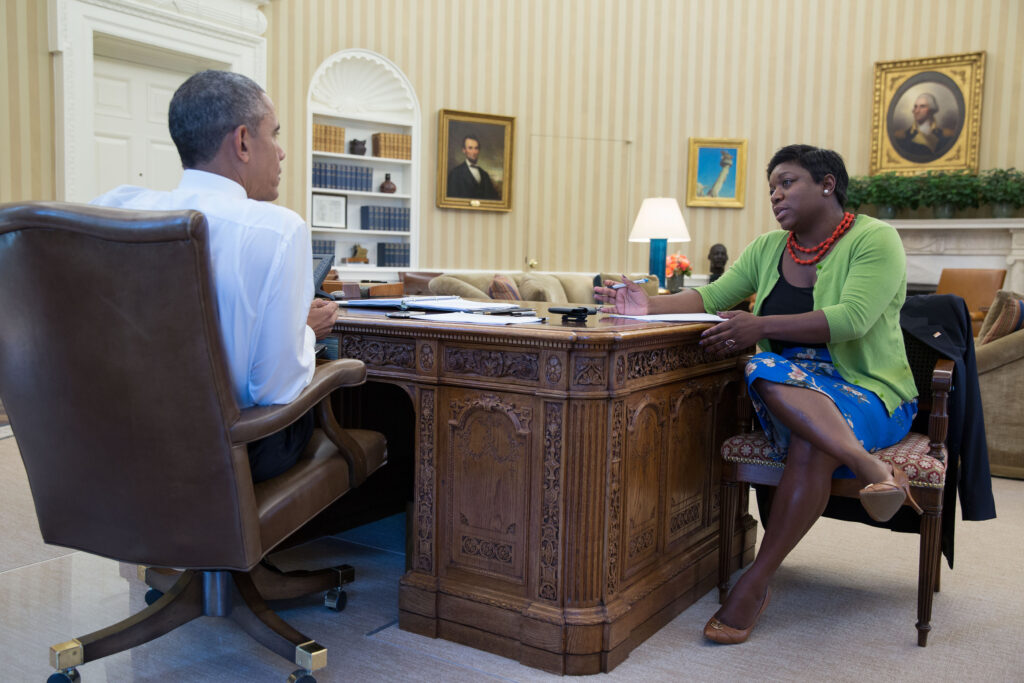
Just to bring it full circle: Towards the end of the book, you write about an experience you had after the White House where you thought you had this new gig you’d applied for in the bag, but you didn’t get it. You were very hard on yourself about that, and I thought you could have been kinder.
The first thing I did [when I didn’t get the job] was go back to the comfortable place of, “You did that all wrong.” [That experience] did knock me down, but it didn’t keep me down. Before, I would be like Eeyore; I would just wallow in it. But [this time], I was like, “Okay, let me wallow. All right, let’s go get a drink.” I want to be real with people; I’m not going to pretend that I don’t still have these [feelings of doubt] that come and go. But I know how to manage it better, and I think that I am more kind to myself.
But this also goes back to the whole notion that Black women are only recognized if we’re Beyoncé or Breonna Taylor— either a superwoman or a statistic. It’s like, can we have some middle ground?
Can we just exist? And in any which way we want to? Sometimes we want to be a superhero, and then sometimes we’re like, “No, I want to sit at home and watch movies all day.” For so long, I thought [that desire] was me being lazy or wrong. No, fuck that. Now I’m laying in this bed, child.
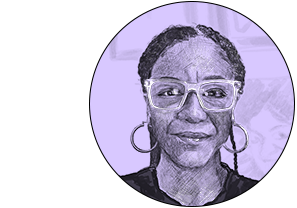
Rebecca Carroll is a writer, cultural critic, and podcast creator/host. Her writing has been published widely, and she is the author of several books, including her recent memoir, Surviving the White Gaze. Rebecca is Editor at Large for The Meteor.